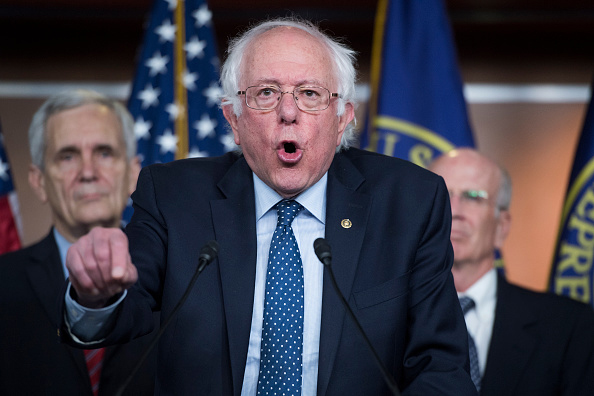
Anyone who’s been watching the Democratic primary debates knows that two of the three front-running candidates routinely equate pharma executives with 19th century robber barons. It’s almost laughable when we see Bernie Sanders, having just suffered a heart attack, energetically resume his assault on the industry that saved his life. It’s just as absurd as we witness Elizabeth Warren insist that healthcare “costs” will go down, while refusing to acknowledge the enormous tax consequences of Medicare-for-all.
In the end, vowing to replace the Affordable Care Act with socialized medicine must be a losing political strategy. Contrary to the assertions of Senators Sanders and Warren, many people in the U.S. are quite comfortable with their health insurance. When Bernie characterizes his plan as “no premiums, no co-pays, no deductibles,” voters are surely adding “and no choice.”
A recent poll conducted by the Kaiser Family Foundation revealed that Medicare-for-all support sagged from a high of 59% in March 2019 to 51% in October 2019. This erosion will continue as costs and consequences
are debated.
What does this mean for pharma? In the long term, it may be good news. Writing in The Wall Street Journal, Peter Loftus suggested that as healthcare debate rages on, any substantial congressional action in 2020 will be highly unlikely. Loftus also noted that an assortment of bills are being considered in this session of Congress. If enacted, they could reduce Medicare spending by up to 30%.
The impending legislation includes the following:
- Allowing Medicare to directly negotiate prices for drugs without a generic competitor.
- Basing Medicare payments on prices paid elsewhere in the world.
- Requiring manufacturers to rebate Medicare for price increases above the rate of inflation.
These proposed rules are designed more to score political points than they are to effect comprehensive reform. They ignore the role of payers and insurers in demanding huge price discounts while inflating prices. They fail to take into account the economic value that most new drugs produce due to their improved clinical benefits. (Remember the uproar around the “thousand-dollar pill” Sovaldi? Once payers calculated the benefit of curing hepatitis C, the price became a bargain.) Giving Medicare bureaucrats the absolute power to refuse to pay for drugs would have a chilling effect on research and development.
At the heart of these proposals is a single obsession with price. Our politicians have obviously never heard the ancient marketing adage: “Speed, quality, price — pick two.” We’re already seeing the consequence of the national price fixation on the availability and quality of generic drugs. This year, Teva announced that it couldn’t afford to make vincristine, a foundation drug of many chemotherapy regimens. In recent months, thousands of patients who had been controlling their blood pressure with generic valsartan (aka Diovan) were switched to another medication. Why? Because some overseas manufacturers were making the drug with carcinogenic additives.
Whatever the outcome of the coming election, we shouldn’t address the drug price issue with piecemeal approaches. Pharma must do its part by making its voice heard.
From the December 01, 2019 Issue of MM+M - Medical Marketing and Media






